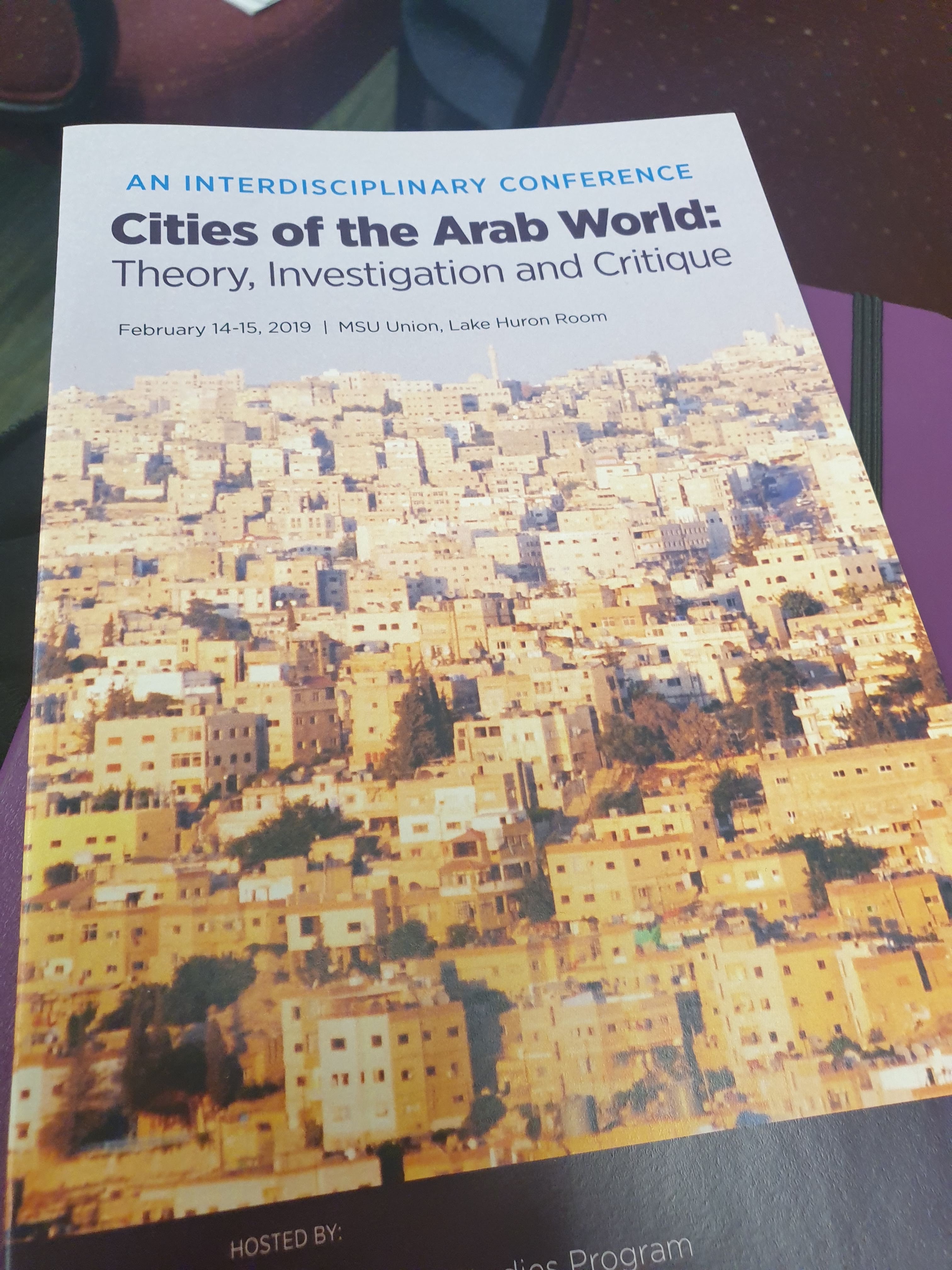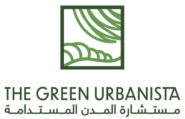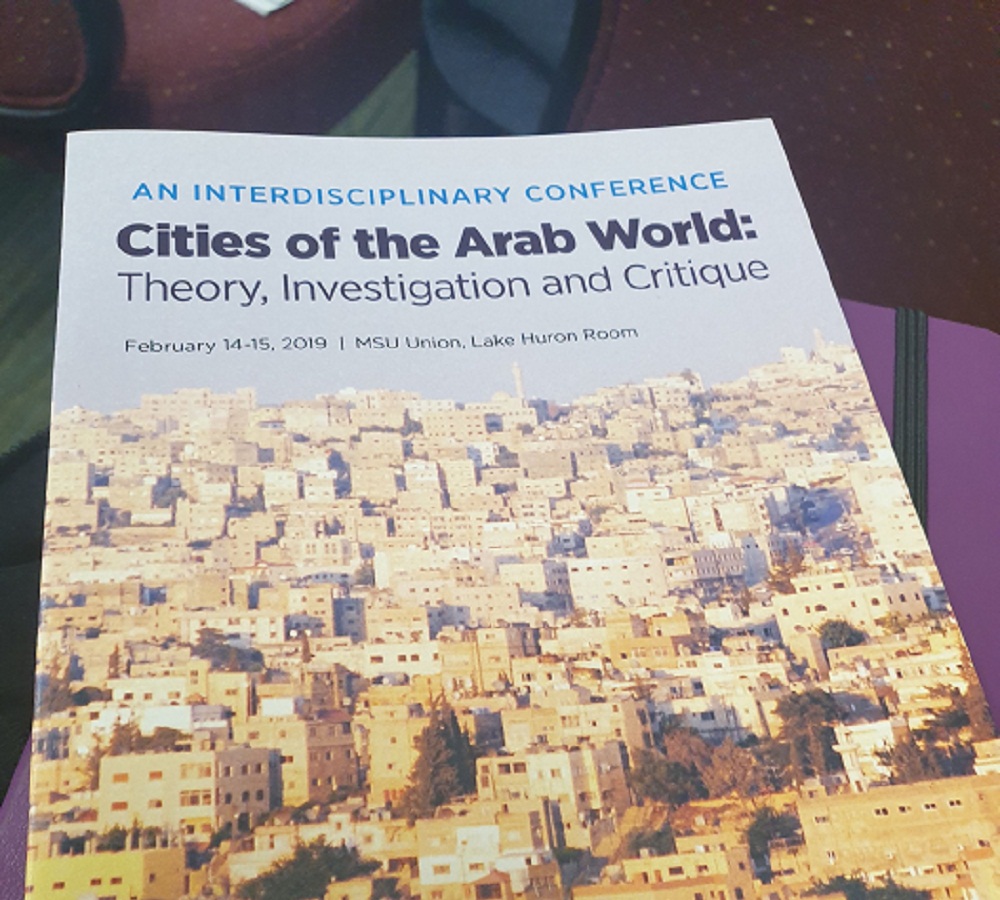I had the pleasure of attending the Cities of the Arab World conference at Michigan State University last week. I have to admit I wasn’t sure what to expect, given it was the first academic conference I’ve attended in a long time. What I found particularly valuable was the interdisciplinary nature of the conference, with sociologists, anthropologists, historians, and urban planners coming together to share insights from their research. Interestingly, I was the only urban planning practitioner in the audience – a point I will come back to later.
It will be difficult to share thoughts on all the talks I found interesting over the two days as there were many. Instead, I’ll focus on a few which are relevant to the cities I’m most interested in personally and professionally – cities of the Arabian Gulf, Palestine, and Jordan.

Gulf Cities: The New Arab Urban
The keynote presentation by Prof. Harvey Molotch was probably the most controversial – painting a picture of Gulf cities as “the new Arab Urban.” Molotch started his talk by confessing that he was “radically ignorant” of Gulf cities when he started his research 4 – 5 years ago, a position he recommended to the audience. As he began to study the Gulf city, he concluded that western academia was “intellectually unprepared for it” and “hence fallback on ridicule.”
As someone who is partly Western-educated and who is frequently in the position of working with Western practitioners on projects in Gulf cities, I strongly related to these statements by Molotch. Others in the audience, mostly Western-educated academics of Levantine Arab origins, were not as convinced.
Molotch described Gulf cities as being created through “enactment” as opposed to organic development and growth. While there is some precedence to this (e.g., Rockefeller Centre in NCY, Empire State Building, some national capitals), Gulf cities pose a unique case in terms of scale and speed. Gulf cities are “enacting everything all at once,” which runs in contrast to our understanding of places and our conceptualization of urban history. He also briefly touched upon the model followed in some Gulf cities of creating an “archipelago of single function cities.” In terms of inequality, Molotch argued that Gulf cities are not a cause of global inequality; rather, they are a display of it.
Through the Q&A, Molotch highlighted the danger of being misled by inappropriate theoretical frameworks in understanding Gulf cities such that one misses what is “amazingly distinctive about them.” Again, I couldn’t agree more. This is in no way a call to be less critical of these cities; as I understood, it is a call to give these cities the intellectual attention they deserve.
Molotch did leave the audience with some questions to consider: what is one’s moral position vis-a-vis the luxuries displayed in these cities? What benefits do these cities bring to the wider world beyond philanthropy?
Amman and Ammani’s
A number of talks focused on the evolving identity of the youth in Amman, particularly given the recent influx of war-fleeing migrants from Iraq and Syria. Amman is, of course, a unique Arab capital city given its relatively young age compared to other Levantine capitals and, thus, the absence of a deeply-rooted urban elite class. The studies shared at the conference highlighted the emergence of a collective “Ammani” identity, particularly amongst the youth (below 35). For example, this is being witnessed in new forms of artistic and cultural institutions and networks across the city, offering an alternative to more established cultural institutions.
Water
Unsurprisingly, water was a key theme for the environmentally-focused panel at the conference. One of the talks I found to be personally moving was that by Stephen Gasteyer on the manifestations of water politics in the daily lives of Palestinians in the West Bank. Through field research conducted while at Birzeit University, Gasteyer and his team mapped out the availability of water in cities and villages across the West Bank (Areas A, B, and C). One of the goals of Gasteyer’s project was to humanize the well-documented disparities in water access between Israelis and Palestinians and shed light on the complex social, ecological, and political systems which form this reality.

Gasteyer shared stories of Palestinian villagers who do not have control of their own water resources, are not allowed by the Israeli government to dig wells in their own land, and are not even allowed to fix their own water pipes. Of course, this creates severe water challenges, with refugee camps having the most intermittent supplies across the West Bank.
Rami Narte commented on water scarcity challenges in Jordan, highlighting two distinct policy narratives. The first focuses on the insufficiency of water resources. It highlights big infrastructure projects as the solution (such as the Red Sea to Dead Sea canal, which does not recognize Palestinian water rights). The second narrative focuses solely on the mismanagement of available water resources and calls for better management of demand and supply. While Jordan has suffered from water scarcity challenges since its creation last century due to its limited water resources, the term “water security” only began to be used recently after the influx of Syrian refugees, noted Narte.
Final thoughts
I would love to see more of these conferences taking place in the Arab world. As far as I know, there are no universities in the Arabian Gulf or Levant which offer doctoral-level, research-based degrees in urban planning or urban studies. Without such programs, it is difficult to imagine a true cross-pollination of ideas between practitioners, academics, and policymakers in the region.


Good one huda! Yes, i wish we get to attend such conferences that actually discuss cities from social, political, economical perspective rather than commercially discussing prohects and moves in our cities.
The discussions seems rich and lets us zoom out and realize the city as a living organism.
Thank you Sara – yes, absolutely! I guess it’s up to us to make it happen 🙂
I loved this read, Huda! The conference sounds really cool, although I will admit I was at first surprised – but then not so much – when I saw that this conference didnt actually take place in the MENA. Very much in agreement with your last point.
Just curious; any thoughts to share on discussions of post-war reconstruction at this conference? I wrote a paper while at universityon the links between water-sensitive planning and post-war reconstruction, so really interested in seeing these being discussed within the Arab context!
Thank you Sara 🙂 Yes, Prof. Najib Hourani shared some thoughts on post-conflict reconstruction in Damascus and how this may be affected by the neoliberal economic context.
Hello Huda,
Nice read! I have been in the UAE for about 4 years and your perspective about urbanisation in the Arab world is interesting. I am sure you have you have a lot of intriguing thoughts about this. Thanks for sharing.
I am researching the drive towards renewable energy in the UAE and its implications as part of my PhD. Abu Dhabi, Dubai and Ras Al Khaimah are serious about sustainability from various policies and initiatives.
Will you please be available for a brief interview? I would to discuss this as a significant part of my research. Please let me know.
Wishing you all the best.
Hi!
What a cool summary. I wish we can have these conferences more often!
Thank you very much for putting this together.
Rami Narte
My pleasure – thanks Rami 🙂